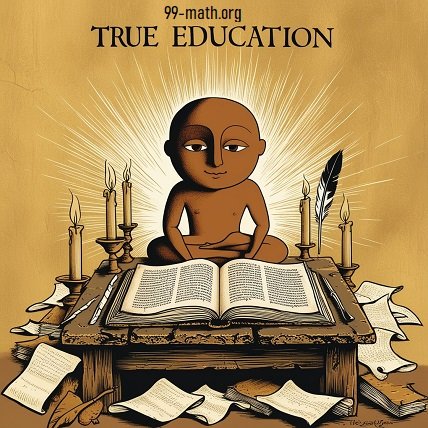Introduction
The idea of true education crosses conventional borders in a society where grades and standardized tests are frequently used to determine the value of education. A true education includes developing critical thinking, emotional intelligence, and social responsibility in addition to knowledge acquisition. It helps people become more adept at navigating life’s difficulties, developing a sense of purpose, and supporting lifelong learning. This blog post explores the components, importance, and ways to cultivate true education in ourselves and future generations, delving into the complex nature of true education.
Understanding True Education
The pursuit of degrees and rote memorization are not the only aspects of true education. It involves fostering an inquisitive mind, inventive spirit, and capacity for independent thought. The philosophical foundations of true education are examined in this part, along with the reasons it is crucial in the quickly evolving world of today.
The Historical Angle
A more student-centered approach has replaced the inflexible, authoritarian style of true education throughout history. Socrates and Confucius, among other ancient thinkers, promoted discussion and critical thought, which laid the foundation for what is now understood to be authentic education.
Contemporary Interpretations
In today’s discourse, holistic development is emphasized in true education. It prepares people for life as well as work by incorporating emotional, social, and ethical components. This more expansive view promotes a more inclusive conception of education.
The Pillars of True Education
True education is based on a number of fundamental principles, each of which advances a person’s personal growth.
Analytical Reasoning
The capacity for impartial analysis and evaluation of information is known as critical thinking. It gives people the ability to solve issues and make wise decisions. Promoting skepticism and inquiry is essential to mastering this ability.
The intelligence of emotions
Recognizing, comprehending, and controlling one’s own emotions as well as those of others are components of emotional intelligence. It is essential to interpersonal interactions and helps people succeed both personally and professionally.
The Role of Educators
true education is fostered in large part by educators. They have an impact on the learning environment and encourage students to pursue their passions in addition to transferring knowledge.
The Instructor as a Mentor
Rather than just imparting information, good teachers guide students’ exploration and foster curiosity. Students that follow this method grow to love learning.
Lifelong Scholars
True educators must live out the values of their profession. They encourage students to embrace growth and development throughout their lives by serving as role models for lifelong learning.
The Impact of Environment
The quality of true education is greatly impacted by the learning environment. True education can only be fostered in an environment that is both stimulating and helpful.
Physical Space: Learning experiences can be improved by a well-designed physical space. True education is supported by classrooms that foster discovery, creativity, and teamwork.
Climate Emotional
Free expression is enabled for pupils in an emotionally secure setting. Learning results are improved and a sense of belonging is fostered by promoting inclusivity and open discourse.
Conclusion
true education, parents, students, and the community must all be committed to the continuous process of true education. We can prepare people for meaningful lives in addition to academic success by adopting a holistic approach that prioritizes social responsibility, lebossduturf.org emotional intelligence, and critical thinking.
FAQ
What is true education?
A true education prepares students for life after school by emphasizing critical thinking, emotional intelligence, creativity, and social responsibility. It is a comprehensive approach to learning.
How can guardians encourage real education?
By creating a passion for learning at home, having conversations, promoting curiosity, and taking an active role in their children’s education, parents may encourage true education.
What obstacles exist for the implementation of true education?
Standardized testing, educational inequality, and the focus on rote memorization—which can impede the growth of critical thinking and creativity—are some of the difficulties.

